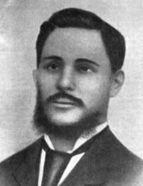

Throughout his life, Capistrano de Abreu engaged with historiographical work and the human sciences more broadly. His correspondence is filled with references to works on history, economics, sociology, anthropology, geography, and psychology, and his personal library was notably extensive given the circumstances of his environment. Regarding his chosen topics and methodological approaches, he consistently kept up with current publications — books and magazines in English, German, French, and Spanish — while also maintaining frequent contact with Portugal. Despite the absence of institutional infrastructure — evidenced, as José Honório Rodrigues noted, by the then limited university offerings reduced to scarce courses in law, medicine, and engineering —, Capistrano de Abreu systematically leveraged a network of research relationships. This network included not only his colleagues at the Instituto Histórico e Geográfico Brasileiro but also other intellectuals in Rio de Janeiro and correspondents both in Brazil and abroad. Among them, the Portuguese João Lucio de Azevedo, who had lived in Brazil for an extended period and possessed extensive knowledge of colonial documentation, stands out for the depth of his exchanges and the significance of the experiences and opinions exchanged.
Although he appreciated his misanthropy and stated in a letter to his friend Mario de Alencar, the writer's son, that "fortunately I had pupils, but I never had disciples, nor did I covet them", Capistrano de Abreu's influence on Brazilian historiography was profoundly significant. He certainly had disciples, including Afonso Taunay and, above all, Rodolfo Garcia, and was admired by young historians of the time, such as Pedro Calmon and Artur Cezar Ferreira Reis, who visited him at his home in Botafogo. In addition to these contributions, José Honório Rodrigues edited the Correspondência [Correspondence] in the 1950s and published his complete works in the 1970s. Shortly after his death, the Sociedade Capistrano de Abreu was established to publish his scattered works, promote his studies, and reward new contributions to Brazilian history. His impact on Brazilian historiography is comparable only to that of Varnhagen. In addition to their differences in generation and historical perspective, Capistrano de Abreu focused on presenting a political and administrative view of the country's history, while he emphasised social aspects and territorial formation from a sociological perspective. His interpretations of topics such as expeditions and flags, land and sea routes, territorial integration, the relationship between the sea and the hinterland, and the role of indigenous peoples in the country’s social formation have been permanently integrated into historiography and left a lasting impact.
This work is financed by national funds through FCT - Foundation for Science and Technology, I.P, in the scope of the projects UIDB/04311/2020 and UIDP/04311/2020.
